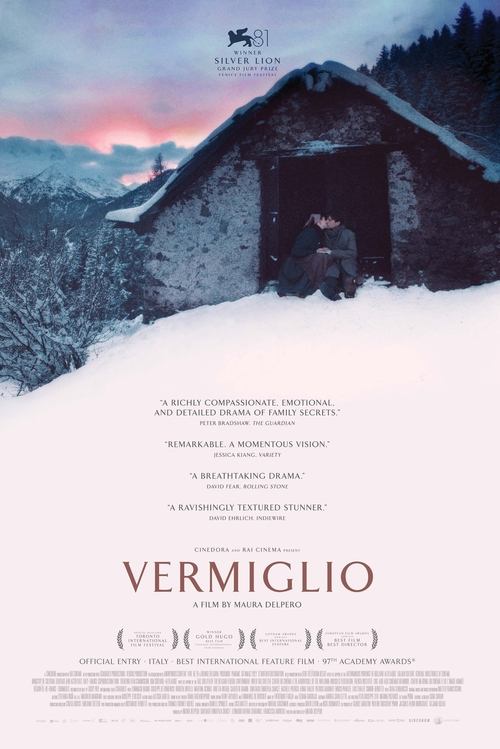
 Vermiglio
Vermiglio
Vermiglio

Set in the small, mountainous village of Vermiglio during the waning days of WWII, a series of dramatic, consequential events unfold after the arrival of a taciturn Sicilian soldier, who hides out in town after deserting the army. While there, the soldier develops a romance with a provincial family’s eldest daughter.

































“Vermiglio,” directed by Maura Alpero, feels like a heartbeat of real life—a window into the everyday rhythms of a mountain community in Italy during the waning days of World War II. It’s a film that moves forward almost imperceptibly, like the wind brushing against the towering peaks in the background. There’s no rush to its narrative, and its beauty lies in this deliberate pace, forcing us to watch, listen, and feel with a patience we rarely muster.
The story of Lucia (Martina Scrinzi) and her family is presented like a fragment of collective memory, an echo of ordinary lives in extraordinary times. Alpero’s script, inspired by family stories, captures the simplicity of daily life with an almost ethereal grace. There are no dramatic flourishes or artificial twists; instead, the film leans on meaningful silences, ambient sounds, and subtle interactions to shape its conflicts and affections. The world it builds is tactile and rich with detail, from the chill emanating off the stone walls of the local school to the murmurs of conversations inside the church.
The characters are drawn with delicate precision. Cesare (Tommaso Ragno), the intellectual and idealistic patriarch, is both the family’s anchor and a symbol of the patriarchal structure that stifles his daughters’ dreams. Adele (Roberta Rovelli), his wife, embodies quiet self-sacrifice, defined almost entirely by the children she has brought into the world. But it’s the daughters who carry the film’s emotional weight. Flavia (Anna Thaler), with her intelligence and ambition, represents a sliver of hope in a place that suffocates possibility. Ada (Rachele Potrich), introspective and melancholic, reflects someone who feels the weight of her reality without being able to name it. And Lucia, the protagonist, serves as the bridge between conformity and the yearning for something more, her bond with the soldier Pietro (Giuseppe De Domenico) acting as both an emotional awakening and a reminder of the external forces shaping their fates.
Pietro, the deserter whose presence stirs whispers and judgment in the village, is more than just a romantic catalyst. He embodies the contradictions of the historical moment: the urge to flee the horrors of war clashing with the moral condemnation of desertion. His relationship with Lucia, though inevitable, unfolds in a refreshingly unconventional way. The film sidesteps romantic clichés, presenting love not as a grand event but as a collection of moments, glances, and choices—often out of the viewer’s sight.
Visually, “Vermiglio” is a moving painting. Mikhail Krichman’s cinematography is stunningly elegant, with compositions that invite the eye to linger over every detail. The mountains in the background aren’t just scenery—they’re a silent character, witnesses to generations who lived, loved, and suffered in their shadow. The near-total absence of a musical score enhances the immersion, replacing it with environmental sounds: wind, footsteps crunching on snow, the creak of wood. This choice underscores the film’s authenticity, pulling the audience into a time and place that feels tangible.
There’s a profound melancholy in how the film approaches the choices and fates of its characters. The most significant decisions happen off-screen or are conveyed through glances and gestures, mirroring the fragmented nature of memory. These people’s lives aren’t presented as a complete narrative but as fragments of stories that fade with time, echoing the reality that we can never fully know the pasts of our ancestors.
“Vermiglio” isn’t a film for those seeking clear answers or cathartic resolutions. It’s an invitation to contemplate, a celebration of the beauty in the simplest details and the complexity of ordinary lives. It demands patience, but for those willing to embrace its rhythm, it offers rare emotional depth and a sense of humanity that transcends time.